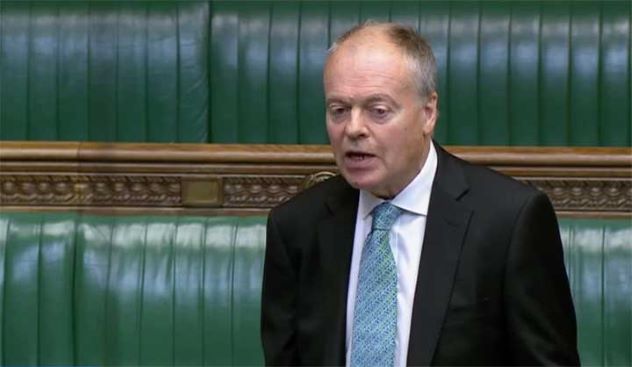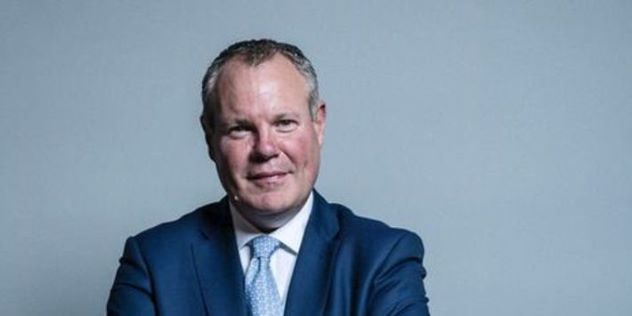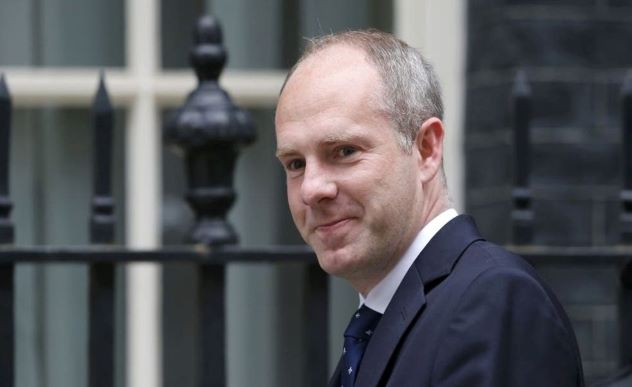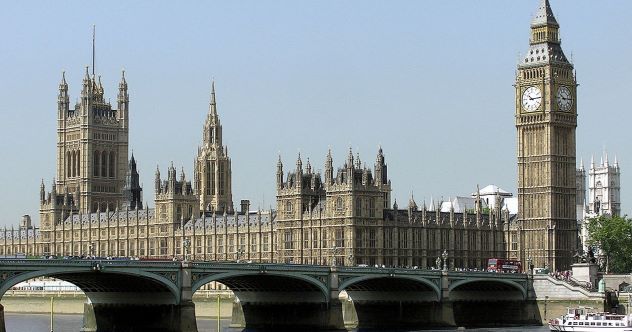Shouting, personal slurs, and howls of laughter. Anyone who thought the British were a civilized bunch ought to tune in to Prime Minister’s Questions (PMQs), a ticketed event at the House of Commons (House) that takes place every Wednesday at noon. PMQs is the opportunity for MPs representing constituents around the country to pose questions to the Prime Minister.
In theory, this sounds like a perfectly reasonable and civil affair. In reality, it often descends into chaos, with many MPs having been suspended from Parliament due to their behavior. Sometimes, however, politicians are suspended from Parliament not because of their behavior inside the House but rather by what they did outside it. Here are ten shocking moments when British MPs were suspended from Parliament.
Related: 10 Hilariously Petty Acts By Politicians And Leaders
10 Dennis Skinner
An MP for the Labour Party, Dennis Skinner is a regular offender and has been suspended from Parliament on numerous occasions, the most recent of which was in 2016. As a man who struggles to bite his tongue, Skinner made a statement in the House about the Panama Papers (millions of documents leaked in 2016 that revealed the financial practices of some of the world’s wealthiest people). The then Prime Minister, David Cameron, had been implicated in the papers.
Skinner asked the Prime Minister about a large sum of money he had allegedly received when writing off the mortgage for a London property. In firing the question at the Prime Minister, he referred to him as “dodgy Dave.” Accused of “unparliamentary language,” the Speaker of the House asked Skinner to withdraw the adjective dodgy. Instead, Skinner reasserted his claims and, as a result, was ejected from the chamber for the rest of the day.[1]
9 Lloyd Russell-Moyle
An even more shocking moment in which an MP was thrown out of Parliament occurred in 2018 when Lloyd Russell-Moyle, a Labour MP, was ejected from the House. On the day in question, MPs were gathered to discuss a vote on the then-Prime Minister’s (Theresa May) Brexit deal. The debate became heated after May called off a vote on the deal in order to seek further assurances from the European Union.
In frustration, Russell-Moyle grabbed the ceremonial mace and proceeded to remove it from its holder and stride off. The mace is a silver-gilt ornamental club of considerable size and the symbol of royal authority, without which the House cannot meet or pass laws The Labour MP was immediately removed from the House by the Speaker amid other MPs’ cries of “expel him.”[2]
8 Ian Blackford
Another British MP who has been thrown out of Parliament on more than one occasion is the Scottish National Party leader in the House, Ian Blackford. Previously expelled from Parliament in 2018, Blackford was again removed from the House just recently, on January 31, 2022. Tensions have been running high in the House amid the “Partygate” scandals that have engulfed the Boris Johnson government, with allegations that the Prime Minister attended parties during a period when the country was in a COVID lockdown.
In the House, in a passionate tirade against the Prime Minister, Blackford declared that Boris Johnson had “wilfully misled Parliament” with regards to the Partygate scandal. Under parliamentary rules, MPs are not allowed to accuse each other of lying. The Speaker gave Blackford the opportunity to withdraw his statement and replace it with “unintentionally misled.” Blackford, however, declined to amend his wording and was immediately asked to withdraw from the House. In the days that followed, Blackford reiterated his claims, stating that Johnson is “not fit to be Prime Minister.”[3]
7 John McDonnell
Like his fellow Labour MP, Lloyd Russell-Moyle (see #9), John McDonnell was also suspended from Parliament after taking the ceremonial mace. In 2009, McDonnell was engaged in a heated debate about the building of a new runway at Heathrow airport. He was infuriated by the plans which would impact his constituents. Indeed, the current plans—which remain a work in progress—would require the diversion of rivers and roads as well as rerouting a major highway.
During a statement by the Transport Secretary, McDonnell got up from his seat and grabbed the mace, putting it down on an empty bench on the Labour side of the House. While doing so, he shouted: “It’s a disgrace to the democracy of this country.” He was angry that plans for expanding Heathrow were being “bulldozed” through without a prior vote by MPs in the House. McDonnell was suspended from Parliament for five days for his actions.[4]
6 Keith Vaz
Sometimes, it is not what MPs do inside the House that leads them to be suspended from Parliament, but instead what they do outside it, as was the case with Labour MP Keith Vaz. The former chairman of the Home Affairs Select Committee (a body that assesses the expenditure of the government’s immigration department) was suspended from Parliament for six months after a shocking scandal.
In a newspaper investigation, it was reported that Vaz had met two men in his London flat to engage in a paid-for-sex arrangement. During the encounter, the Labour MP was covertly recorded, allegedly offering to buy illegal drugs for a third party. At the time, Vaz had claimed that he had met the two men to discuss the redecoration of his flat, but this was not found to be credible. After a report from the Commons Standards Body, Vaz was suspended for six months for showing “disregard for the law” and “disrespect to the House.”[5]
5 Jonathan Sayeed
Conservative MP Jonathan Sayeed was suspended from Parliament for two weeks after it was revealed that he had used tours of Parliament to promote a business. The English Manner is “the UK’s leading etiquette and protocol institute,” offering courses on dining etiquette, elocution, and afternoon tea. As part owner of The English Manner, Sayeed was even reported to have taken clients into the House, allowing them to dine in one of the private dining rooms in order to promote the company.
Sayeed claimed that he was merely showing the tour groups around the House in a personal capacity and not for business purposes. Yet, this claim has been described as “hard to buy,” given that the company listed a “unique private tour and champagne reception with senior members of Parliament” on its website. A report by the Select Committee on Standards and Privileges concluded that Sayeed “had fallen well below the standards the House expects, and risked damaging its reputation.”[6]
4 Clive Betts

In 2003, Labour MP Clive Betts was suspended from Parliament for a week for his involvement in an attempt to mislead British immigration officials. He had hired a Brazilian national, Jose Gasparo, who was in the UK on a student visa, as an office assistant. However, with his visa due to expire, Gasparo and Betts took a holiday together so that Gasparo could reapply for a new student visa on his return.
Toward the end of the holiday, Gasparo received a fax from a college he had hoped to use as proof of his student status for his visa application. However, the letter explicitly stated that it could not be used for this purpose. Distressed, Gasparo concealed this statement on the letter with corrector fluid, and Betts photocopied a duplicate of this document on the way to the airport. In a report by the Select Committee on Standards and Privilege, it was found that Betts had acted “extremely foolishly,” and his acts “fell well below the standard expected of a Member.”[7]
3 Conor Burns

Former trade minister, Conor Burns, was suspended from Parliament for seven days after intimidating a member of the public. The MP resigned from his position shortly after a report by the House of Commons Committee on Standards. In February 2020, Burns had written to a person connected with a company with whom Burns’s father had a dispute regarding a loan. In the letter, Burns wrote that: “I am acutely aware that my role in the public eye could well attract interest especially if I were to use parliamentary privilege to raise the case.” Parliamentary privilege protects MPs from being sued for defamation for speeches made in Parliament.
In their report, the Committee on Standards noted that Burns had been under a “considerable degree of personal stress.”. Nevertheless, it concluded that, as parliamentary privilege “is precious to our democracy,” there was no justification for using this privileged status to intimidate a member of the public. Thus, there was a serious failure to “uphold the values and principles of the House.”[8]
2 Justin Tomlinson

Another MP suspended from Parliament for his actions outside the House is Conservative MP, Justin Tomlinson. A former minister for the Department of Work and Pensions (DWP) with responsibility for disabled people, Tomlinson was suspended from the House for two days after leaking a confidential report. At the time, he was a member of the Public Accounts Committee, which was working on consumer credit regulations. Such regulation was particularly important for the disabled community whom Tomlinson was supposed to be protecting, with 18% of disabled persons having turned to payday loans.
Yet, in his self-professed “clouded judgement,” Tomlinson shared the draft report with an employee of a payday lender, who responded with comments and suggested amendments. According to Parliamentary Commissioner for Standards, Kathryn Hudson, Tomlinson’s actions allowed the payday lender to influence the committee’s recommendations. He later made a “full and unreserved apology” for his actions.[9]
1 Dennis Skinner (Again!)
It would only be right to end this list where it began: with the controversial veteran Labour MP, Dennis Skinner (see #10). Several years before his slur about “Dodgy Dave,” Skinner attacked the future Prime Minister’s close friend, George Osborne. Back in 2005, in a debate in the House concerning the UK economy, Skinner began to get irate as Osborne questioned the Labour government’s economic achievements.
Taking to the floor, Skinner defended the government’s economic achievements stating, “In the 1970s and a lot of the 1980s, we would have thanked our lucky stars in the coalfield areas for growth of 1.75 percent. The only thing growing then were the lines of coke in front of boy George [Osborne] and the rest of them.” In making these remarks, Skinner was referring to old photographs of Osborne next to a line of cocaine that had recently surfaced in the media. Skinner refused to withdraw his remark and was removed from the House.[10]
